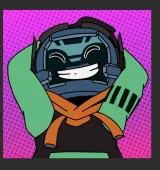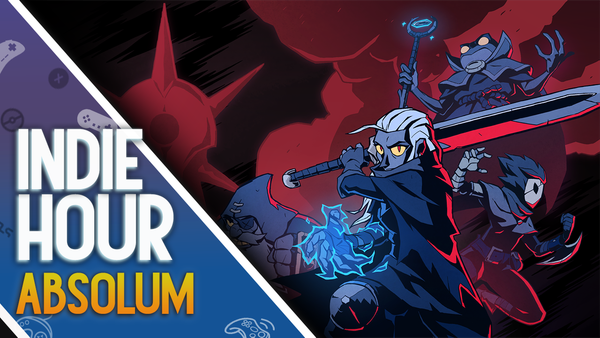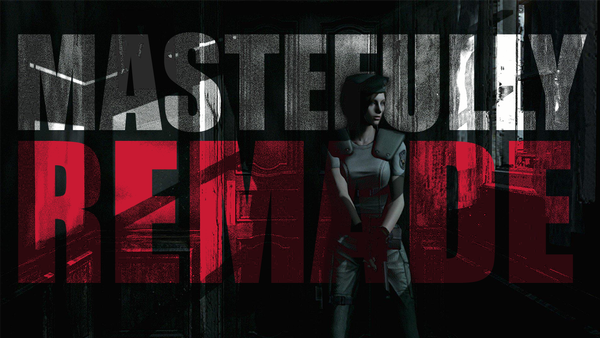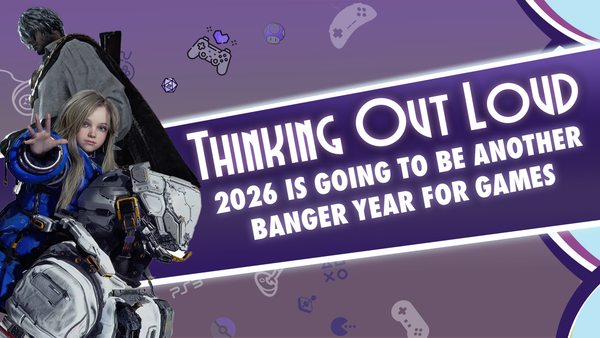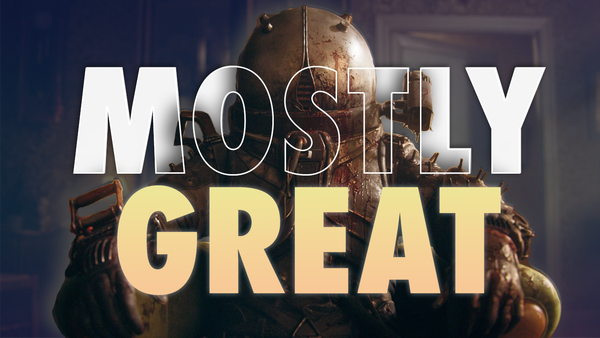Like A Dragon: Infinite Wealth (Review)
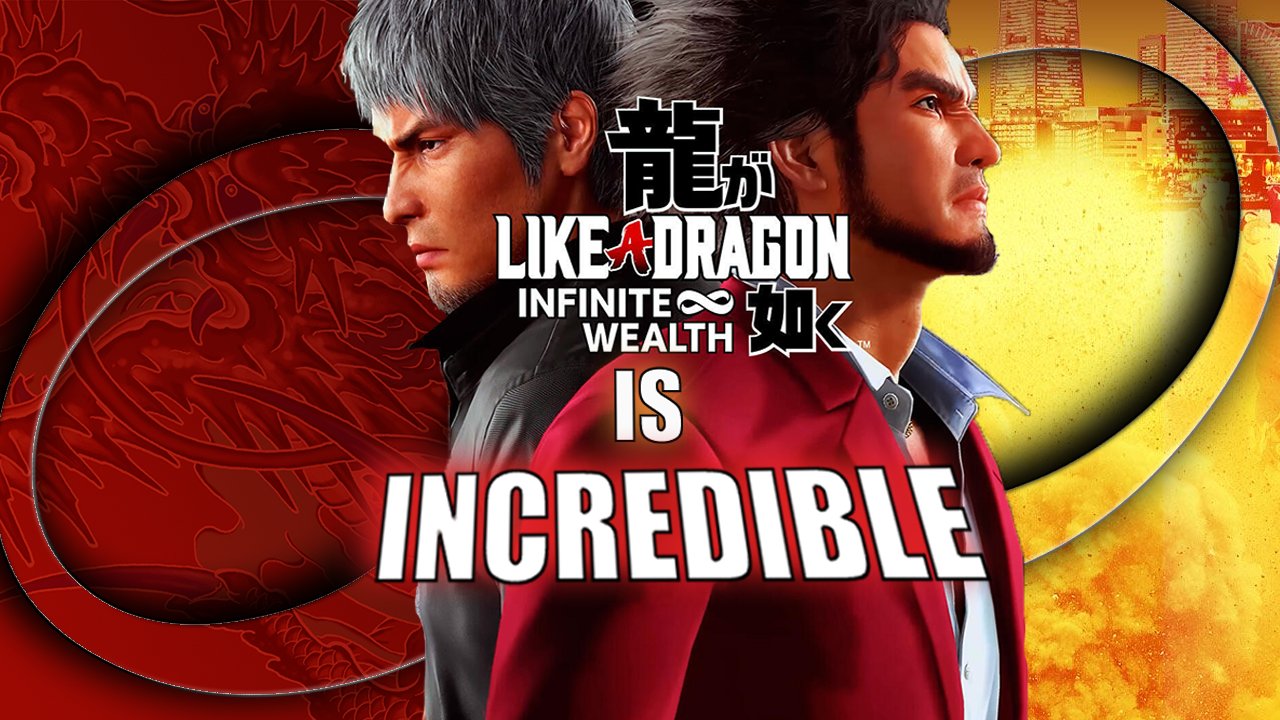
Table of Contents
Introduction
There is always something special about a journey, the twists, the turns and evolution of the universe and the central characters. There's a reason why despite 1000's of episodes we still tune and with excitement for the latest adventures in One Piece or tune in the latest in whatever cinematic universe they've become invested in. For many of these stories we've followed these characters from the start of this journey and an early age, up until their senior years. The Like A Dragon series, falls in a fascinating place here with Infinite Wealth. Where Like A Dragon Gaiden felt like an epilogue for series protagonist Kiryu Kazuma, Infinite Wealth feels like the official passing of the baton to Infinite Wealth's Ichiban Kasuga who was first introduced in Yakuza 7 or Yakuza: Like A Dragon. What's interesting for this series is despite the unshakeable personality and character that Kiryu has carried in this universe, but the overall personality and charm of the world here that RGG has created throughout the years at this point extends beyond him, and in every single way Like A Dragon Infinite Wealth is a testament to the future of this series. It excels at introducing interesting characters, fleshing out existing characters, and creating interesting open worlds that take the series outside of Japan. Whilst it may not be infinite, there is a wealth of incredible content that captivates and in many ways feels like its own independent game existing within an RGG game.
Before we get into the meat of the review I'd like to also mention that I will be dividing and timestamping components of this review that I do consider spoilers, but there are some key additions in this game that I do feel are worth mentioning, but I do not wish to spoil for those trying to avoid spoilers or still making their way through the game.
This way the longest time that I have placed in a Like A Dragon game, just making my way through the story and an ample amount of side content, and I loved every single second of it. Let's get into my review for Like A Dragon: Infinite Wealth.
Story
Like A Dragon: Infinite Wealth continues the story of Ichiban Kasuga and takes place a few years after the events of Yakuza Like A Dragon and Like A Dragon Gaiden. After the dissolution in the major clans Ichiban is helping ex-yakuza find work and fit back into everyday life, when suddenly a whirlwind of events thrust Ichiban into a search for his estranged mother who was last sighted in Hawaii.
Infinite Wealth's story can take a few chapters to really get the momentum rolling in the early with the story both reintroducing beloved characters, and setting up new characters, and all of the moving parts to this games 50 hour story. It also makes every effort to introduce you to it's various side activities and their stories too, but once you're passed that initial stretch Infinite Wealth's story is fantastic and makes all of its setting up worth it.
The story also see's the return of the series new lead protagonist Ichiban Kasuga sharing the stage alongside the long standing Kiryu Kazuma on the journey around the rough streets of Hawaii. Infinite Wealth ultimately tells two stories running in conjunction with the sub-theme of mending the past, and another of paving the future. These stories, are explored through our two protagonists Ichiban and Kiryu as they serve as a compass of the times for the Yakuza. There is a story of Kiryu reflecting on his past, and life after the dissolution of the Yakuza, and their is the story of Ichiban, following the breadcrumb mystery of twists and turns which have implications on the future of the Yakuza, and those who have tried to move past that way of life.
Whilst I really did enjoy Like A Dragon Infinite Wealth's story, there was a few issues that I felt with the structure, pacing and and ultimately some of the payoffs of that this game tries to deliver on. Given there are so many interweaving components and characters in this narrative, the game does take its time both introducing and re-introducing characters whilst setting the stage for the bigger picture at play. With this in mind it does mean that it'll take a couple of chapters to really take off and get the momentum going.
I do feel that many of the reveals, twists, are a mixed bag, with some feeling rewarding and they they payoff well for what the narrative setup, as well as hammer home the heart of what Infinite Wealth's themes. However, on the flipside it feels like there are many moments that are given a lot of exposition, yet never let the moment or climax of said plot point get time to properly breathe.
Overall though I did enjoy the story for Infinite Wealth, whilst it wasn't my favorite entry in the series it still did have its moments where it could shine, and told a story that whilst staggered and a bit of a yo-yo in terms of its pacing, is still a compelling ride, due to the varied personalities of our main cast and the rollercoaster moments that do unfold.
Combat
Like A Dragon: Infinite Wealth see's the return of the turn-based combat that the series pivoted towards with Yakuza 7, and it is still as engaging and enticing, as it was in the pervious game, which is made even more compelling with the various amount of jobs your characters can take on.
For those unaware, the job system in Infinite Wealth works much like the job systems found in more traditional RPGs, and this is intentional by design, as RGG loves taking and implanting the fantastical elements that define these adventures, and placing them into the modern grounded setting, that is the city streets of Hawaii and Japan. What are these jobs you may ask, well they're literal jobs or professions such as being a host, a maid, or a cab driver. These different jobs vary in their abilities that they unlock.
It all narratively has some form of meaning too, as Ichiban was always a Dragon Quest fan, he see's his adventures as a glorified RPG adventure, justifying not only the different jobs, and exaggerated attacks, but also the bombastic different types of enemies that you face, and the different abilities they perform.
If there is one aspect of Infinite Wealth's combat that I feel keeps it fresh, it is how it handles maneuverability when positioning each character. Infinite Wealth's combat is structured as a turn-based experience, however, you're able to move your active party members around during their turns, positioning the best way to attack and deal the most damage to the largest group of enemies. You can also knockback enemies into walls, or other enemies, making positioning feel like a much more important variable, on top of exploiting enemy weakness, and attacking enemies with various attacks.
There are also group attacks, and tag team abilities that Ichiban can perform with his companions that a filled up with the infinity gauge next to the party member, and work similar to showtime attacks in Persona 5. Infinite Wealth also see's the return of Poundmates, which again pull from the catalog of other RPG's mythos of various summons, and here in Infinite Wealth you can call upon, various different friends you acquire along your journey, who for three turns will aid you in battle, either attacking, buffing or healing your party. There is so much that builds upon these solid foundations.
To me, Infinite Wealth's sandbox is simple to understand, but given the amount of flexibility found through its progression, and unlockable jobs, group abilities and the like, make the core combat loop, continuously feel fresh and experimental.
Game Systems
What I love about the Like A Dragon games especially the newer turn based RPGs is how much they have taken influence from almost every RPG and adapted the best parts here into this experience. Whether it is the personality driven stats, drink links to bond with companions that resemble Persona, the poundmate summons that resemble Final Fantasy, the job system that can be found in both Dragon Quest and Final Fantasy or the little mini-convos that resemble heart-to-hearts from Xenoblade. There is so much here that takes its influences from the pillars of many successful RPG formulas, that feel uniquely distinctive with their own RGG flare. It also fits contextually within the character of Ichiban who is a Dragon Quest fan, and perceives the enemy encounters as such, justifying the way the combat flows to be a reflection of Ichiban's imagination.
The game see's the return of Personality Stats, these work as skill checks and can be levelled up by doing different activities, responses in conversations, or through completing challenges. Some content may be locked out from the player until you level up different stats to a certain proficiency, similar to how it functioned in Like A Dragon, but RGG have leaned into it a lot more here. Feels like it has taken some influences from Persona. What I like about these stats are how they feel purposeful for interacting with different scenarios, but also with how you're rewarded points towards these stats, which blends nicely into the standard completion checklist that has been a staple of the RGG games for a while now. It means regardless of what you're doing you're always growing in some way, which can have a positive effect on all different facets of Infinite Wealth's loop.
Exploration
The exploration for Like A Dragon Infinite Wealth follows the same philosophy the series has always held with regards to have intimate locations coupled with activities that make the world feel dense and each location feel bespoke and distinct. The different zones that make up the lush tropical island of Hawaii are broken into areas that are rife with Strong enemies and world bosses that pose as formidable threats that can feel like they make various parts of the map early into the game feel treacherous to explore.
Infinite Wealth has more of the substories that have come to be a staple in the series, that often here lead to new mechanics, mini-games and side activities that further broaden the game, along with the more one off stories that serve as intimate stop-off points to learn about the everyday lives of different strangers.
I'll dive deeper into the specifics of these activities that are present in a moment
but there is one aspect of Infinite Wealth's exploration that I would like to touch on, and that is whilst Infinite Wealth's returning locations along with the new tropical streets of Hawaii, do make it undeniably the largest RGG game to date in terms of size scale, and overall density.
While I do find the sheer size of Hawaii to be rich full of activities, I do at times it's size and scale in comparison to the iconic Kumurocho does feel to be missing a little bit more of the intimacy that I felt made that location so special and memorable throughout the previous iterations of Yakuza games.
That being said there are still many distinct locations to explore, that I do feel overall makes the locales of Hawaii and its activities a standout, especially in comparison to many other games on offer. It's a slow burn, but I do feel that as I spent more time in Infinite Wealth's open world, it did rub off on me more, and eventually hooked me. Also I'd like to point out, that as I progressed through the main story of Infinite Wealth I did so at such a slow pace, because of just how much side content this game offered that would distract me and pull me into another detour, before getting back into the main game, it is almost overwhelming just how much this game will throw at you and I mean that in the best possible way. It's undoubtly the largest game in the series and the side content is extensive, entertaining and so charming, and with that being said, I'd now like to dive into these activities more specifically that are on display in Infinite Wealth.
Game Activities
There are more activities here in Infinite Wealth than any other previous Like A Dragon game, and it feels like they interlock and all feed into one another in terms of how rewarding way. There is a mini-game system called Aloha Links which is like a friendship app, similar to something like Facebook, where you wave to people in the open world and they're added to this friend's list compedium and you can see them wondering around the open world greet them, or help them if they're in a bind. There's the Super Crazy Delivery Service mini-game where you're rushing through the streets doing tricks and collecting burgers, and pizza to deliver to nearly customers in style. I found myself immediately addicted to this mini-game having in consumer many of the early hours of my playtime
There is even a mini-game that simulates the thrills of online dating with a Tinder mini-game that requires you to go full rizzler and chat up different people and provide the right answers to conversations based on their profile, along with a button tapping combination to make sure you're responding fast enough. There's some more substantial mini-games engrain themselves into the core of exploration and that is the Sujimon Dex and Battle system, which is essentially a Pokemon side game, where you're collecting different enemies in the world and forming a team to battle other trainers who have also collected different Sujimon's. The Sujimon battles follow a similar structure to Pokemon, having the core components be centered around knowing the strengths and weaknesses of the enemies. There are different abilities that each Sujimon has with some of them being centered around attacking, some around buffing, and others around healing. There are also multiple ways to improve and evolve your Sujimon too, and different tiers of rare Sujimon.
There's even different Gym leaders you'll face, with the hopes of squaring off against the champion at the end. It's like it's own independent side story that takes upwards of 10 to 15 hours alone to fully complete. It's a whole rabbit hole that you can go into and lose yourself too.
The other big side activity that is lengthy in terms of the content that it offers and the story it tells is the Dondoko Island side activity. Think Animal Crossing meets Sims where you're cleaning up an island and crafting your own DIY objects, fishing, and collect items or bugs on the Island. But that's not all, there is also a game of managing the rank and overall style and popularity of the item, and then the way you style your island matters with how you please the customers who come to visit your island. There's this whole other side to the experience where you're trying to make the island as appealing to as many different potential clients as possible, which in term means more potential money and chances of them returning to the island.
You can also find different potential customers out in the world who might want to stay at the Island, and at a certain point the Dondoko Island Side activity clicks in with the Sujimon activity, where you can assign different captured Sujimon to complete tasks on the Island to better help the facilities on the island. Much like the Sujimon activity there is so much here that I could ramble for hours, but it is absolutely insane just HOW much effort they've put into the side activities alone.
The last major thing that I feel is worth mentioning is the Dungeons. These are procedural generated dungeons that feel like a fun distraction initially and feel like they become a core driver for levelling up and farming later down the line. It isn't bad by any means but it is the component of the game that does feel the most tedious. One other thing that I'd like to mention is how one of there is one dungeon alongside new game plus which is also locked behind the deluxe edition of the game, which I think is a pretty shitty move and I feel gating this type of content particularly the New Game Plus, is something that puts a damper on what is otherwise a fantastic experience.
Job System
Like A Dragon Infinite Wealth see's the return of the Job System which serves as the staple for individual character progression and playstyle, and operates much like how you would expect in a traditional RPG pulling influences from the RPG founders Dragon Quest and Final Fantasy, but at the same time providing a slapstick take, offering jobs based in reality, that isn't to say they are realistic as they're over the top bombastic and that's half the charm. Whether you're a Aquanaut, Hostess, Maid, or Action Star. There feels like there is an insane amount of jobs available and the amount of unique abilities and personality that comes with each job makes swapping and experimenting feel like a must, and essential throughout your playthrough. It also serves to keep the turn-based combat feeling fresh, which is a form of combat that can become fatiguing to many, especially given how many random encounters you'll run into in this game.
Drink Links
Drink Links are an extension of the bonds that were established in Yakuza slash Like a Dragon 7 and serve as a moment for Ichiban to connect with the various party members. I won't spoil the details or stories here, but they do further serve to flesh out and contextualize the struggles and side stories that are touched on in the main story. They also have in-game benefits too, as their are different ranks for each character referred to as bond ranks, these unlock different in-battle benefits, like tag-team attacks, think the showtime attacks from Persona 5, or the new Synergy attacks in FF7 Rebirth. But it isn't only these attacks, but the possibility of doing follow up attacks, and also having both Ichiban and the party members with stronger bonds being able to inherit more abilities from the different jobs that they've taken on.
Progression
There are like in any RPG different weapons and armor that you'll acquire throughout your journey that are tailored to the different job that you pick up. These weapons and armor come with their different ranks which correlates to the amount of damage and defense that these items provide. On the surface this weapon system seems rather simple and straightforward. But where these weapons and items begin to evolve is in the weapon crafting. Similarly to how system operates in Yakuza 7 there is a weapon crafting side activity slash progression system which allows you to craft, enhance, and refine new weapons. You can also through upgrading and investing money into the store improve the features and what can be crafted. But the enhancements made to these various weapons allows for different weapons to target particular weaknesses, as well as different ailments on enemies too. The system overall makes for one that isn't new or anything that reinvents the wheel, but manages to remain competent throughout the experience, with only a handful of times early on where I found myself having to intentionally look for materials to upgrade my weapons.
Gameplay Conclusion
So to close off the gameplay component and sorry if this component is long-winded but there is just so many moving parts that make up the experience in Infinite Wealth. Each of it's combat and gameplay systems interlock so well into one another, and it makes for a loop that feels rewarding regardless of what you are doing. Whether you're taking on enemies in combat, battling in Sujimon, cleaning up Dokodoko Island, or having d&ms with your teammates, it all serves something in terms of story content, but also a gameplay rewards.
Conclusion
In conclusion, Like A Dragon Infinite Wealth encompasses and accentuates all of the features, functions, and storytelling that we've come to love over the years with RGG games, and the Like A Dragon series. It flexes its muscles doubling down and delivering what feels like an Infinite Wealth of content, see what I did there, with a Monster-capture mini-game, Animal Crossing Sim, that could serve as their own standalone titles, alongside many other different activities that provide 100's of hours of content. The story is compelling, and can feel a little long-winded at times, and does take a few chapters to get going, but delivers a compelling conclusion and also a new beginning, and I absolutely am nothing short of excited to see the future of this series. I was continuously surprised with Infinite Wealth, and always had something new to engage with.
I loved this game, and it is one that is likely to move you if you jumped on at the start of Ichiban's journey back in 2019, and doubly so if you've been following this saga since the start of Kiryu's journey all the way back. When one door closes, another one opens and Infinite Wealth is nothing shy of a showcase of what RGG has to offer from it's storytelling, combat, and engaging activities, and if you're new to the series it may not be the best starting point narratively, but gameplay wise you'll be right at home. The Like A Dragon series is one that seems daunting at first, but once sinks its claws into you, it'll become a series that you're locked into watching for the long haul.
